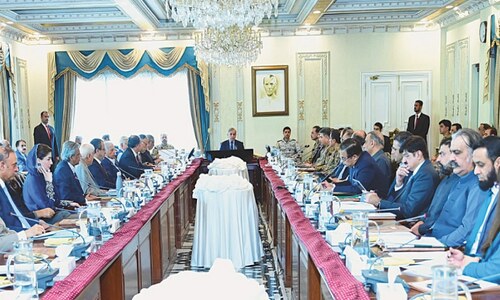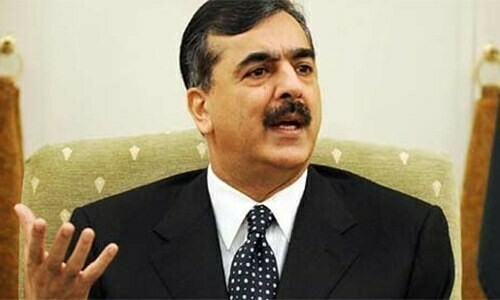WASHINGTON, Oct 27: If America’s Nato allies do not send more troops and weapons to Afghanistan, the war against the Taliban and Al Qaeda militants may be lost, warns The Washington Post.
In its lead editorial on Saturday, the Post notes that the United States and its Nato allies have already started blaming each other for the deteriorating security situation in Afghanistan.
This week, US Defence Secretary Robert M. Gates publicly blamed America’s Nato allies for failing to more supply troops and equipment for Afghan operations.
He even threatened to withdraw US troops from Kosovo if the allies continued to shy away from meeting their commitments in Afghanistan. The Post reports that at a recent meeting of Nato defence ministers, the Netherlands complained that — along with the United States, Britain and Canada – it bears the brunt of the fighting against the Taliban while Germany, Italy, Spain and most other Nato members restrict their soldiers to the safer parts of Afghanistan or ban them from combat.
“In reply, the German defence minister suggested that Nato’s aggressive military strategy in the south (of Afghanistan) does more harm than good,” the Post points out.
The newspaper, however, notes that such disputes have always been part of Nato but recent developments in Afghanistan do show that the situation there may get out of hand if not arrested immediately.
“There are real problems, both in the fighting and in the supply and distribution of forces, and they are worsening,” the Post warns.
Quoting UN and independent monitoring groups, the newspaper says that violence has increased significantly in Afghanistan for the second straight year, spreading from the southeast to areas close to Kabul.Coalition deaths, including 94 US soldiers killed, already exceed the full-year total for 2006.The Post points out that the disparity of effort among Nato members continues to be significant.
The United States contributes 15,100 troops to the 41,000-member Nato-led international force, known as ISAF, and deploys another 13,000 in counterterrorism operations.
Britain has 7,700 troops in the country. Thus Britain and the United States together account for more than half of ISAF’s strength.
Meanwhile, France and Germany together deploy 4,200 soldiers, or 10 percent of ISAF — and none serve in the areas where most of the fighting takes place.
Among other nations only Canada and the Netherlands, with 1,700 and 1,500 troops, are contributing substantially to anti-Taliban operations.
At the defence ministers’ meeting, some Nato allies have pledged to increase their participation, but only slightly.
Germany promised to send 200 more trainers for the Afghan army, and France pledged to send 50.“But the bottom line is that 2007 is looking like another year in which the Western alliance will lose as much as it gains in Afghanistan,” the Post warns.
“Unless the trend is arrested — which would require more troops, more resources and more willingness to put soldiers at risk — it will lead both Nato and Afghanistan to failure.”














































Dear visitor, the comments section is undergoing an overhaul and will return soon.